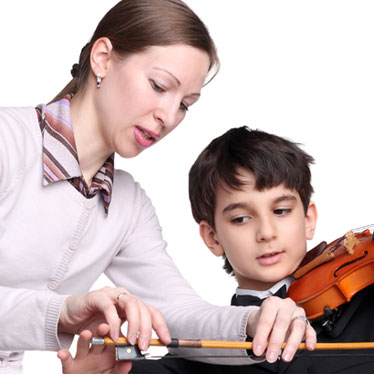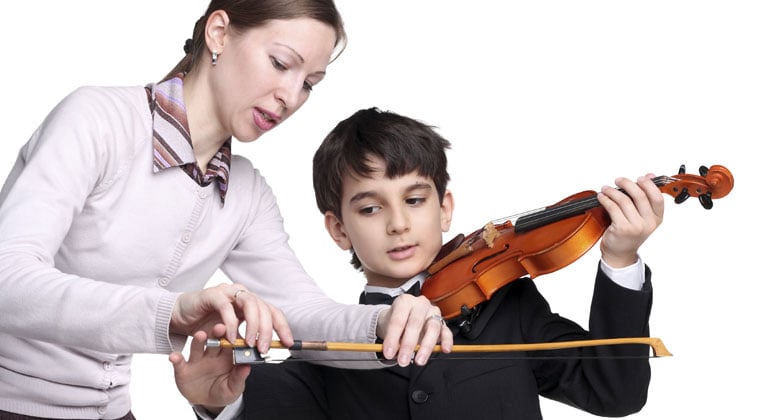How Involved Should I Be With My Child's Musical Education?

 Parents want to provide their children with the best possible tools to succeed in life. Whether that involves private school enrollment, supporting a variety of extracurricular activities, or engaging specialized tutors to increase your child’s abilities, you know that your children need your unconditional love, guidance and support while they’re growing up. It’s part of what being a great parent is all about.
Parents want to provide their children with the best possible tools to succeed in life. Whether that involves private school enrollment, supporting a variety of extracurricular activities, or engaging specialized tutors to increase your child’s abilities, you know that your children need your unconditional love, guidance and support while they’re growing up. It’s part of what being a great parent is all about.
And in today’s society, equipping your kids with the best education available is paramount for success.
As more and more cognitive studies confirm the benefits of musical instruction on academic performance, many parents are recognizing the scholastic advantages that can be gained by learning to play a musical instrument like the violin. Indeed, many recent studies have confirmed the association between educational excellence and music instruction. And, for that reason, many public schools are instituting mandatory music curriculums for certain early grade levels.
Yet, although most parents understand the necessity of helping their kids reach their full academic potential through encouragement, accountability, and enthusiastic praise for accomplishment, many still wonder how much involvement in their child’s music education is advisable.
But, the same rules apply with musical instruction. Your kids still need your involvement and support, and there’s really no such thing as becoming too involved.
Common Misconceptions
Parents may be hesitant to get involved with their child’s musical education for a variety of reasons. Perhaps you never learned to read or play music yourself, and that fact has made you reluctant to discuss or participate in your child’s musical education. Don’t let it!
Even if you know very little about music, you can still support and encourage your child’s progress. By honestly embracing your child’s excitement you show how important music mastery is to his or her future, and help aid learning mastery.
Or, maybe you feel like too much involvement or a rigid structure will make your child’s music instruction less fun. While that may be true for many students, you know your child best. If creating a strict practice regimen doesn’t work well with your child’s learning style, try a family recital time, or some other fun way to show your involvement.
Ways to Get Involved
The NYU Child Study Center has developed a great list of ways for parents to get involved with their children’s education. And although most of their effective ideas are typically used to enhance scholastic learning, the same basic principles can apply to a music education.
At Home:
- Help your child organize his or her practice schedule, but make sure that free time is included.
- Talk to your child about new notes, techniques, or other things learned in music class, and ask to see a demonstration.
- Actively participate in your child’s progress—you can regularly post achievements on your family’s social media pages, send videos to distant relatives who can’t attend recitals, or help arrange ‘jam’ sessions for a few of your child’s friends who play.
At School:
If your child is learning the violin at school, there are many ways to get involved. Even if your students are teenagers, there are countless ways to encourage and support their music education.
- Volunteer to become a classroom helper.
- Help organize a fund raiser or a concert for your local community.
- Get to know your child’s teacher and ask if there is any way that you can help, or ask about supplemental instruction that your child can perform at home.
- Create a car pool schedule with other parents for any kids who’d like to stay after school to practice—with the teacher’s permission.
Parental Involvement Pays Off
When you get involved with your child’s musical education, both your child and the community can benefit. Studies have proven that children who have a high level of parental involvement are less likely to begin using tobacco, become depressed, or develop eating disorders as they get older. Your constant support and encouragement helps develop healthy self-esteem and confidence.
Plus, your involvement and commitment is an excellent example. Your child will see you “practicing what you preach,” and those types of lessons make a lasting impression.
Your level of involvement in your child’s education is directly related to the level of achievement he or she can reach. So don’t hesitate! Get involved and see the difference it will make in your child’s musical progress and success.


